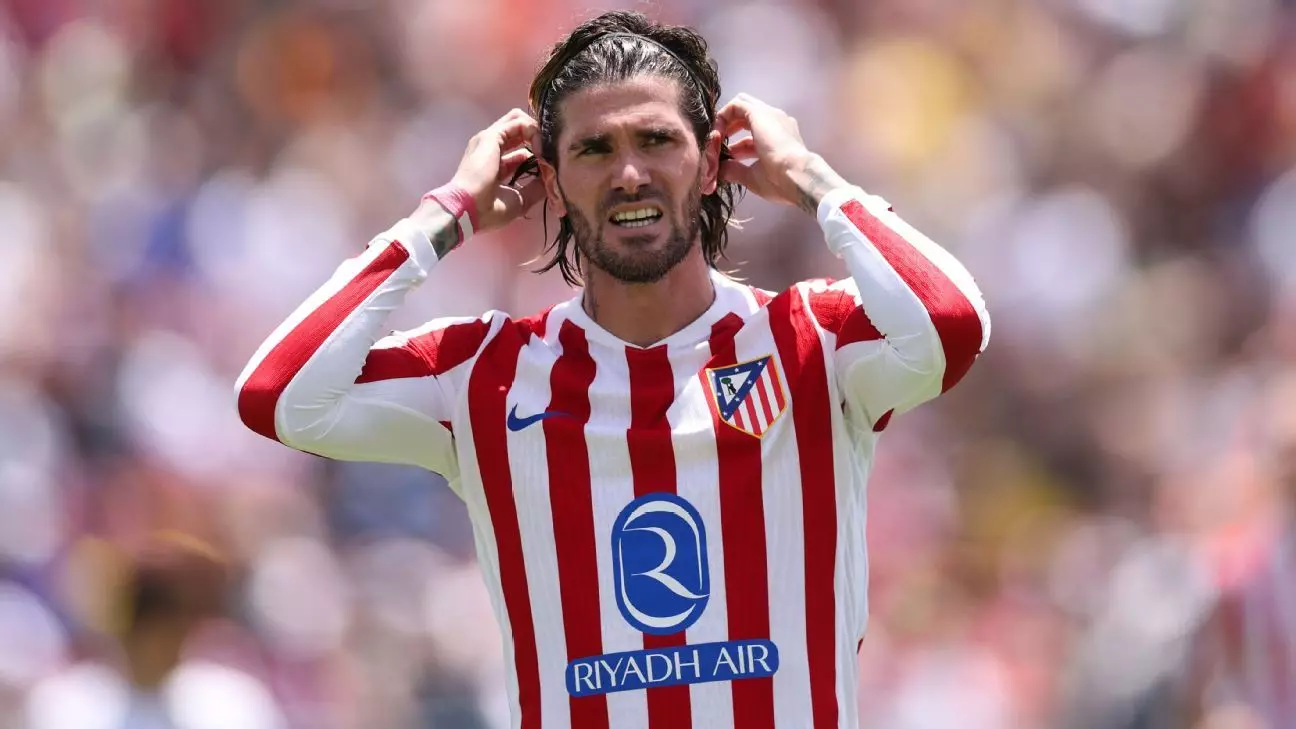Inter Miami’s decision to bring Rodrigo De Paul into their fold marks a significant shift in the club’s strategic vision. Far from a mere splash of talent, this move indicates an ambitious plan to elevate Miami’s stature both domestically and internationally. De Paul, a seasoned World Cup winner and key figure for Argentina, embodies a level of experience and leadership that the club has desperately sought. In signing him on a loan with a potential for a permanent deal, Miami demonstrates confidence in their capacity to compete with the league’s established giants. This is not just about filling a roster spot; it’s about making a statement that Inter Miami intends to be a serious contender, leveraging top-tier talent to accelerate their growth trajectory.
More Than Just a Player — A Symbol of Transformation
De Paul’s impending arrival signals a shift towards building a more competitive and sophisticated team. His track record with Atletico Madrid and Argentina showcases qualities that elevate the entire squad’s dynamic — vision, agility, and a winning mentality. The fact that Miami’s ownership was proactive enough to send Jorge Mas to Madrid to negotiate underscores their commitment at the highest level. This isn’t a club content with mediocrity; it’s one embracing transformation, embracing the challenge to reshape its identity through strategic signings. De Paul’s presence will not only bolster the midfield but also inspire the team’s younger players, setting new standards of professionalism and excellence.
Implications for the Club’s Future and Core Strategy
While De Paul’s initial status as a non-Designated Player might seem like a minor detail, it hints at an intriguing long-term plan. Miami’s current DPs — Messi, Alba, and Busquets — form a stellar core that captures global attention. Signing De Paul on a loan provides flexibility; if a DP slot opens in the future, Miami is well-positioned to upgrade his contract. This approach speaks to a smart, measured build-up, prioritizing quality and depth without overextending their resources. Moreover, the club’s ongoing negotiations with Messi and Busquets suggest a strategic roster management that balances star power with sustainable growth.
Beyond the Pitch: A Broader Cultural and Competitive Shift
The arrival of De Paul comes at a pivotal moment for the MLS and Inter Miami’s own evolution. Competing in tournaments like the Club World Cup and the Leagues Cup, the team aims to showcase its new caliber of talent on bigger stages. De Paul’s experience in high-pressure situations, including the World Cup triumph, brings a mentality of resilience that Miami sorely needs. This isn’t merely about football; it’s about transforming the club into a global destination, a magnet for stellar players eager to embrace the challenge of elevating American soccer. Through strategic signings and fearless ambition, Miami is positioning itself as a hub of elite talent and innovative growth — a bold move that could redefine the franchise’s legacy for years to come.

